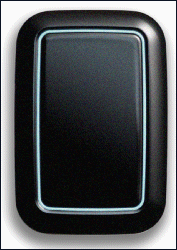It’s DEMO time again.
The twice annual industry insider’s conference kicks off today at a new
location, Palm Desert, Calif. Web startups, computer companies, analysts,
venture capitalists, press and PR folks will make up the bulk of the 700
attendees expected to attend.
There are a total of 68 companies scheduled to demonstrate new technologies at the conference, which starts its 17th year this week.
Unlike most industry events that focus on a particular area, like the
upcoming RSA conference with its security angle, DEMO runs the gamut from
consumer to enterprise technologies.
“It’s like a science fair for
grownups,” Chris Shipley, executive producer of the event, told
internetnews.com. “The strength of DEMO is its variety and the
serendipity of making connections you didn’t expect going in.”
This week’s event does indeed cover a broad spectrum of diverse technologies. Well-known companies like Seagate Technologies and Symantec will share the stage
with startups at DEMO 07. Seagate will formally debut
its Digital Audio Video Experience (D.A.V.E.) technology, a project
previously code-named “Crickett.”
Seagate describes the DAVE platform as
an enabling technology that delivers 10-20 GB of wireless storage in an
accessory smaller than many common slim-line mobile phones. DAVE technology
is designed to store, play and share digital files on mobile phones, PCs,
and other wireless-enabled devices.
Designed for telcos and mobile handset manufacturers, DAVE works with
either Bluetooth or Wi-FI connections in a package about the size of a
centimeter-thick credit card. It can operate up to 30 feet from the phone.
 |
They call it DAVE. Source: Seagate |
Also, the mobile storage platform is open source and is designed to help
third-party software developers create new applications for the mobile phone
utilizing the hard drive’s capacity.
“Products using DAVE technology will enable digital content, whether for
business or entertainment use, to be stored, moved, and connected in ways
never before possible,” said Patrick King, senior vice president and general
manager of Seagate’s consumer electronics business unit.
Aggregate Knowledge, out of San Mateo, Calif., will unveil an Internet shopping service designed to help online
shoppers discover what they might want to buy based on what other shoppers
looking at the same items bought.
Aggregate Knowledge’s Discovery Service collects information on customers’ behavior (anonymously) at participating
Web sites and makes relevant suggestions. The company said it uses a super
computing architecture to collect billions of data points in real-time to
deliver the right contextual suggestions. The service doesn’t require
personal information or registrations, so no personal identification is
collected.
“What we’re doing is analyzing the pre-buying behavior right up to the
second you’re ready to, say, buy the pair of shoes,” Paul Martino, Aggregate
Knowledge CEO, told internetnews.com. The service lets you know, for
example, what other people who bought those same pair of shoes also
purchased. Launching in two weeks, the service is free for the first 30 days
to ecommerce Web site operators, followed by a pay-for-performance pricing
model.
The company also has a Discovery for Media service which makes online
content recommendations. The Discovery Window at WashingtonPost.com is
already powered by Discovery for Media. Other rollouts are planned.
Waltham, Mass.-based Zink Imaging is a
good example of a company that will demo something unexpected. A technology
spinout of Poloroid, Zink has developed a special kind of pre-inked paper
that will let phones and other portable devices produce full color
printouts.
DeviceScape Software is another
company aiming to give small devices a boost. The San Bruno, Calif.-based
firm will unveil a service that allows any Wi-Fi enabled device to automatically connect to Wi-Fi hotspots and municipal networks without filling out a set up screen or agreement to terms if it’s a service you use regularly and have already registered once.
The service is designed to work
with traditional notebook computers as well as media players, VoIP phones
and game systems that have Wi-Fi built-in. The software is available now as
a free download for consumers.
“Hot spot operators have told us that even [for] legitimate users, about half
the time they open up their laptop and it fails to make the Wi-Fi connection
for some reason,” Glenn Flinbaugh, vice president of products at
Devicescape, told internetnews.com. “Anything that makes it easier
will help customer satisfaction and support costs.”
DeviceScape also will offer a Wi-Fi connection where it knows a service
has a roaming agreement with another service that the consumer might not
even be aware of.
DEMO attendees might also GetABuz while at the event. No, not that kind
of buzz. Palo Alto-based BUZ
Interactive will show its GETaBUZ service that lets consumers
personalize their voicemail messages by mixing their choice of music and
their own voice.
IDC analyst Julien Blin said BUZ Interactive “could do for voicemails
what ringback tones did for dial tones.”


